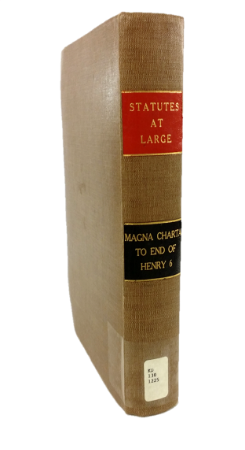Magna Carta
Magna Carta, which is Latin for the "Great Charter," was first issued by King John of England as a peace treaty with rebellious barons threatening civil war. It was negotiated on neutral ground referenced in the document - "in the meadow that is called Runnymede."
Over the course of the thirteenth century, the document was revised and reissued by subsequent monarchs until 1297. Thereafter, the 1297 version of the Magna Carta was included in English statutes, and portions endure even today.
Through the centuries, Magna Carta has continued to influence legal concepts of Due Process, Trial by Jury, and other individual rights. Respected attorneys and politicians, including English jurists Sir Edward Coke and Sir William Blackstone, America's founding fathers, and U.S. Supreme Court justices, have referenced this document for its enduring legacy as a symbol for the rule of law.
Magna Carta at the Harris County Law Library
The Harris County Law Library's Historical Collection has an over 252-year-old print of Magna Carta. This colonial-era print is the same edition found in the libraries of America's founding fathers and still bears the impressions of a printing press in its pages.
Despite its age, it is still relatively young compared with the 800-year-old text it holds. The enduring principles laid out in the original and passed to America's founding fathers can still be seen in legal works throughout the Law Library.
Click here to view the Law Library's 1763 Magna Carta.
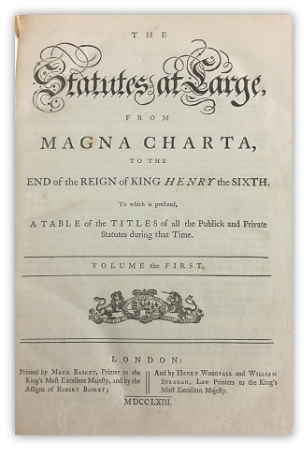
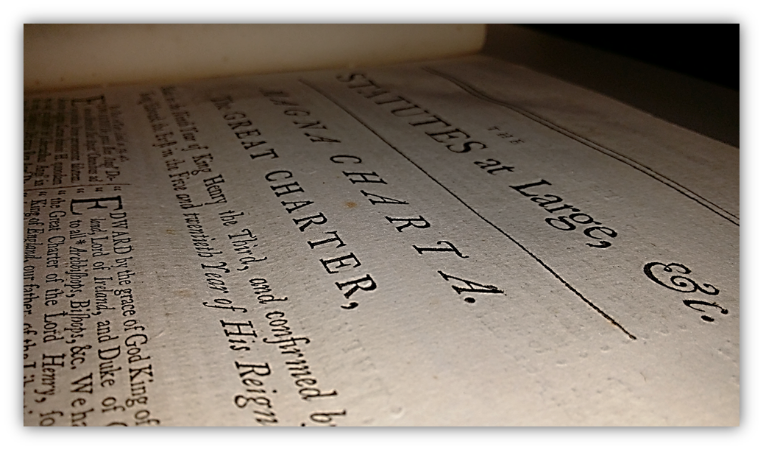
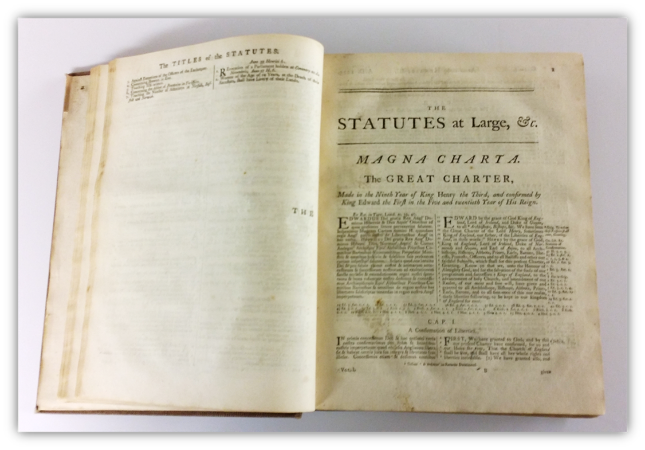
Houston Bar Association Law Week 2015
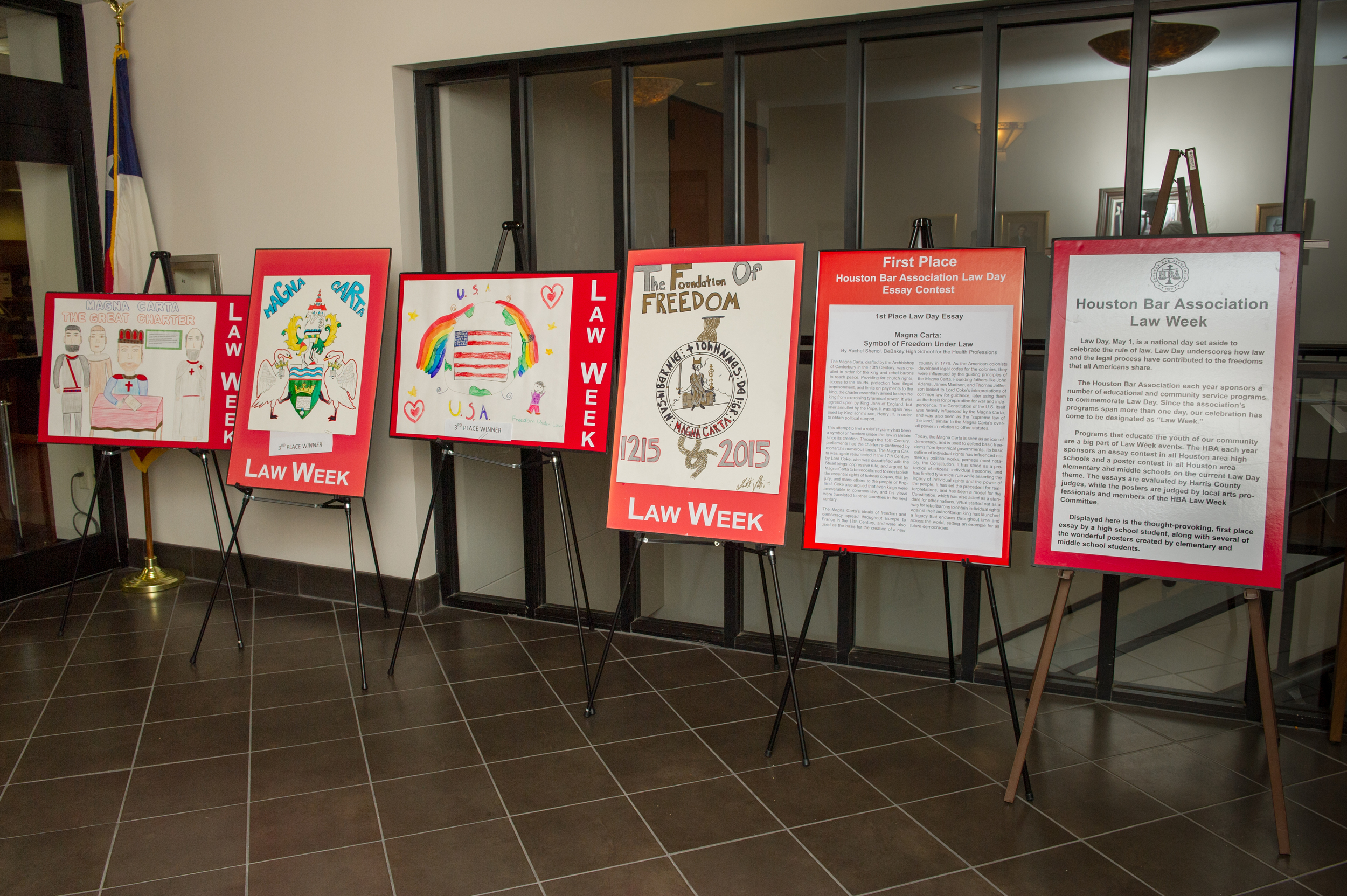
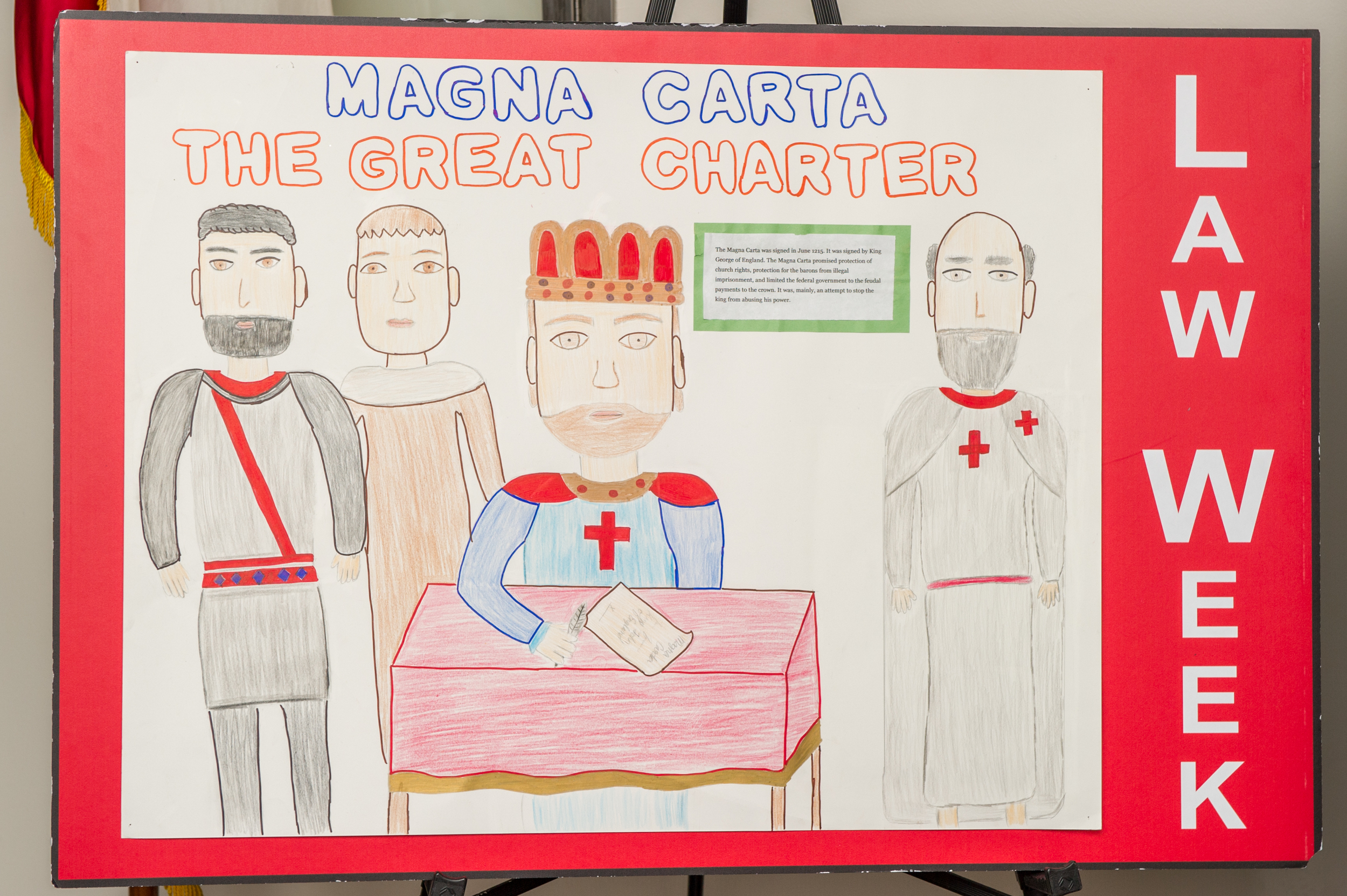
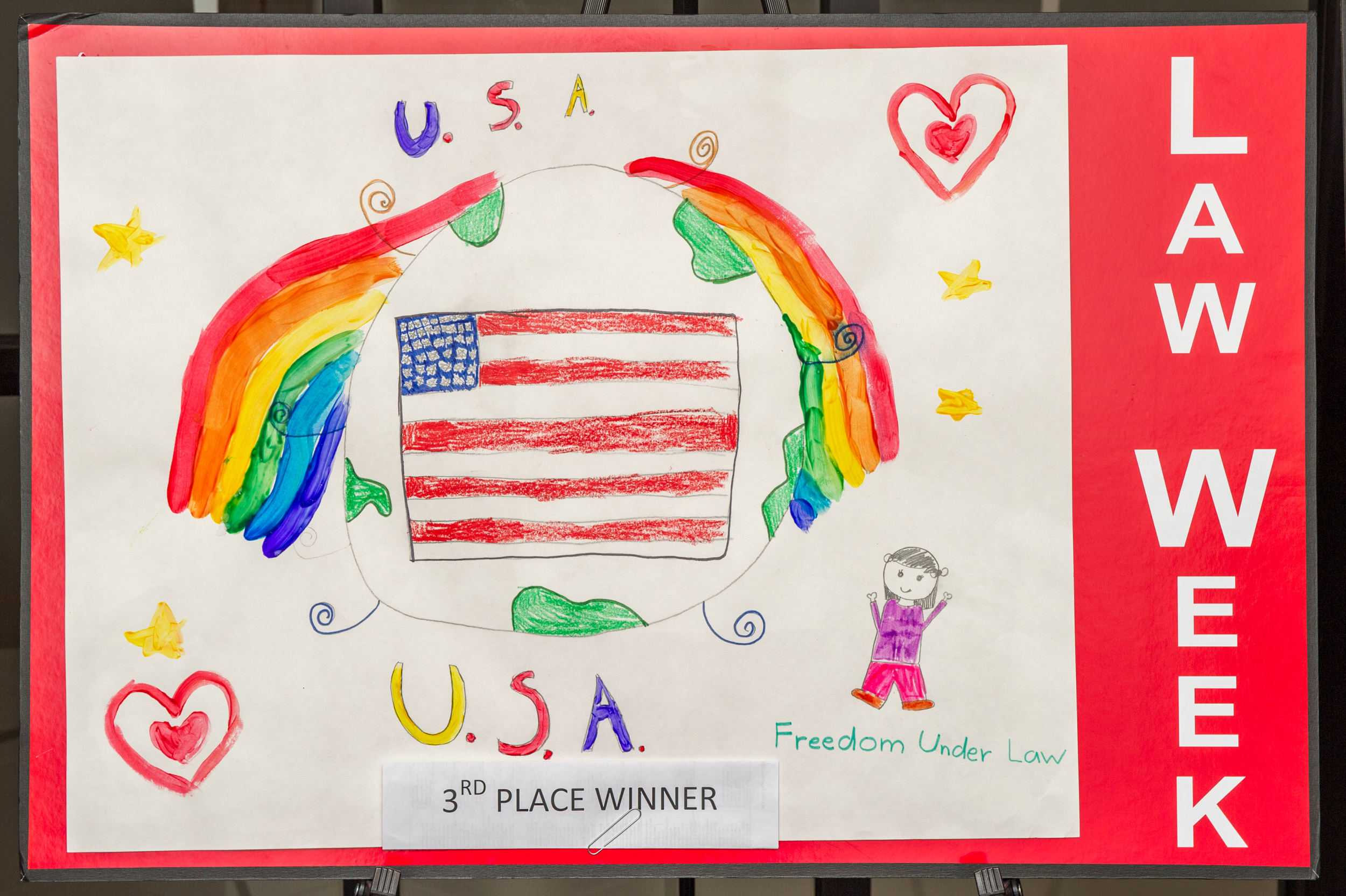
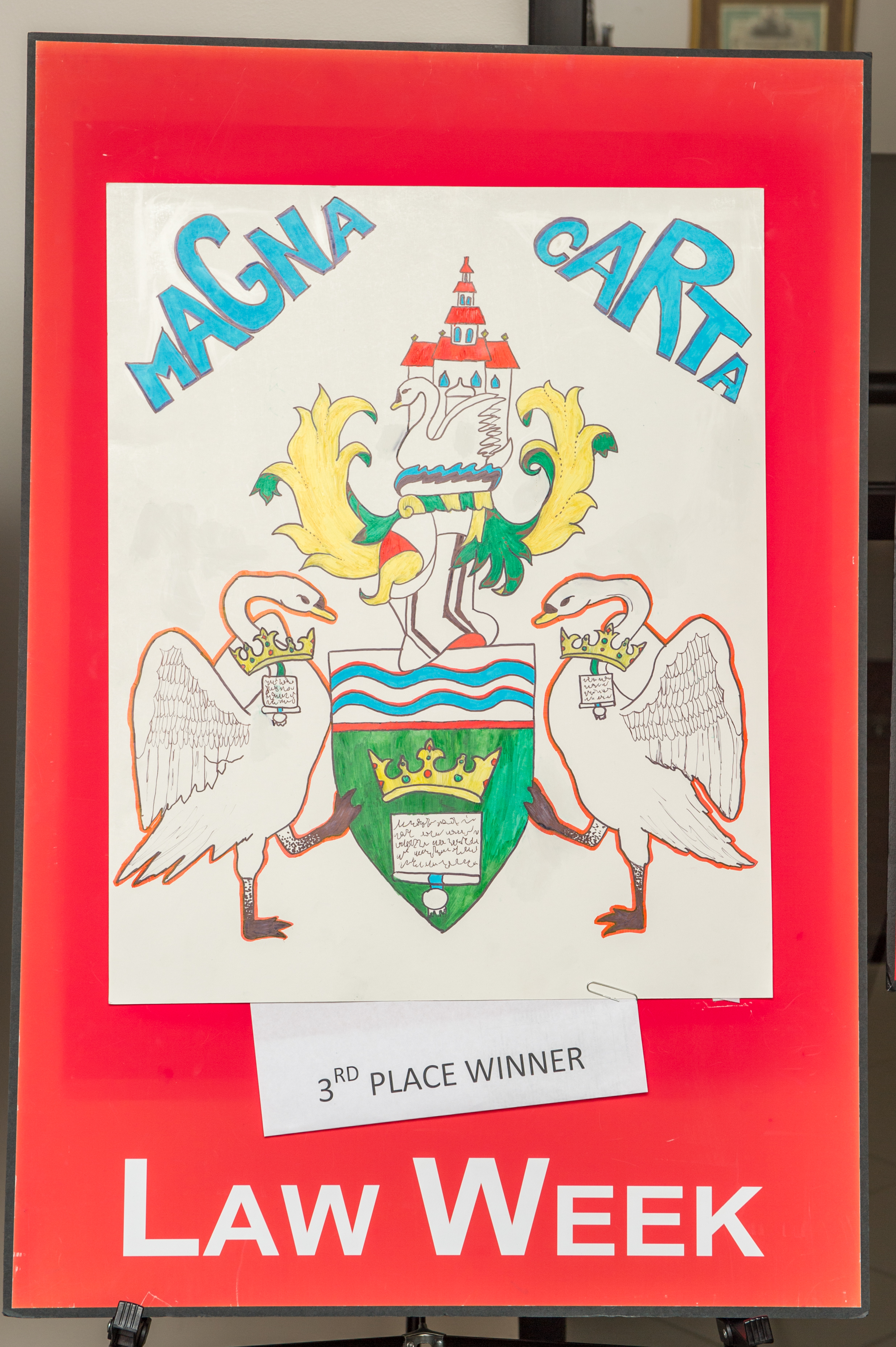
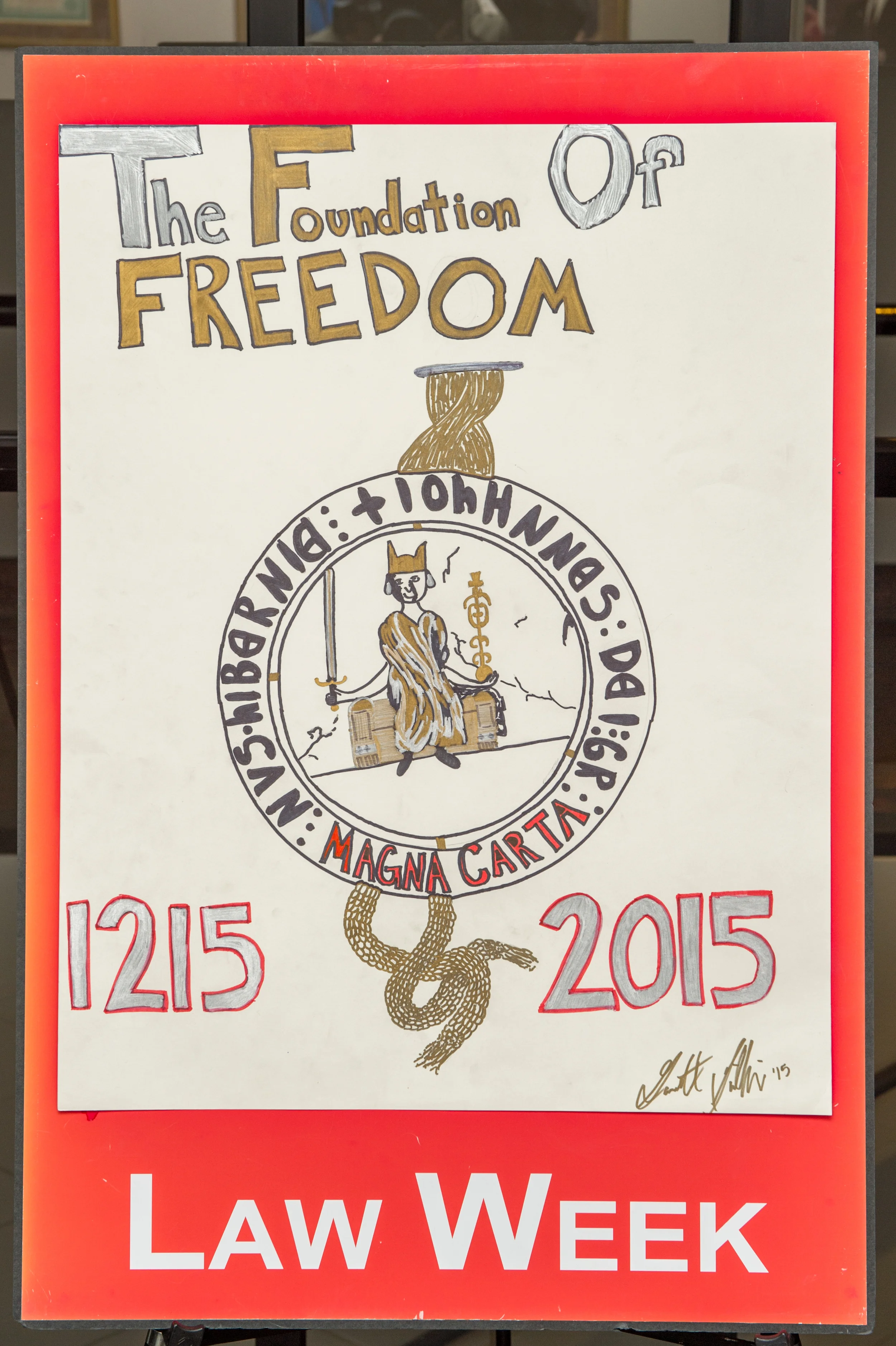

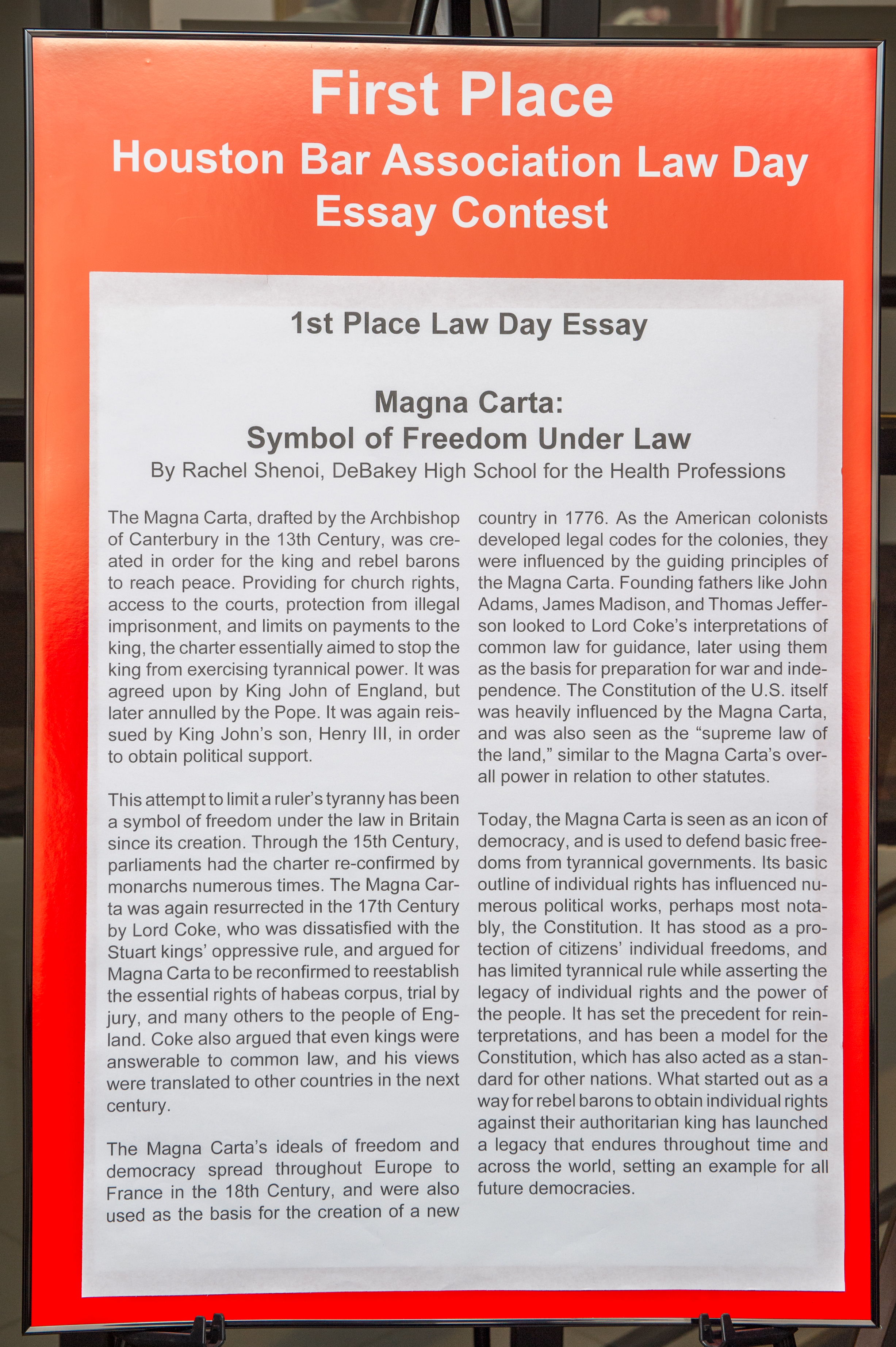
The Houston Bar Association Law Week Committee regularly plans activities throughout the city to celebrate the Law Day theme for an entire week.
For the 2015 Law Day remembrance, activities included a poster contest for local elementary school students and an essay contest for high school students focused on the importance of Magna Carta in the modern rule of law.


